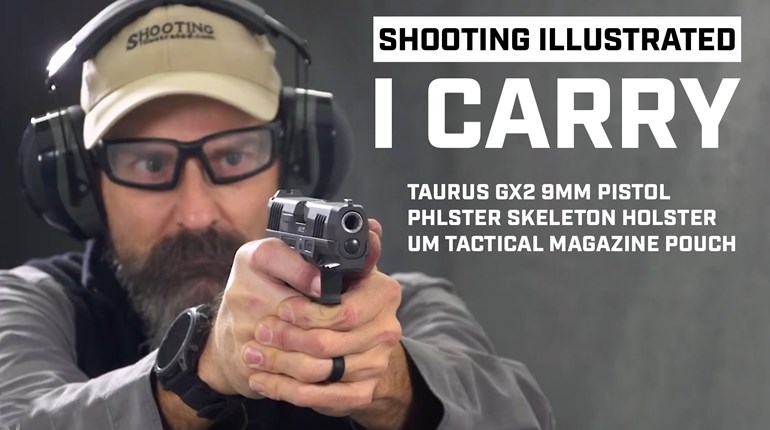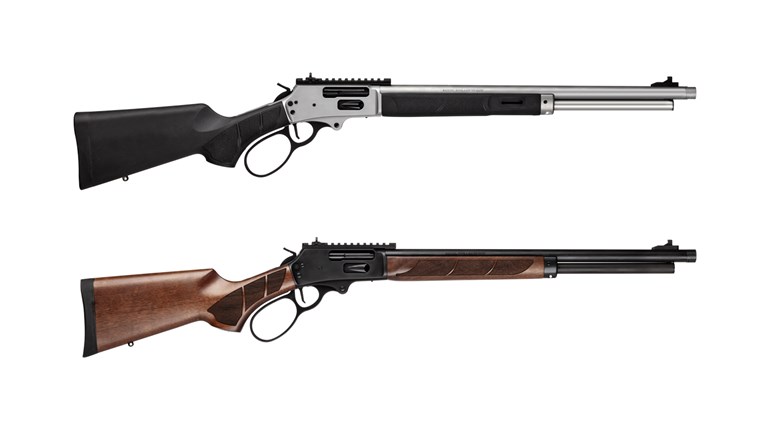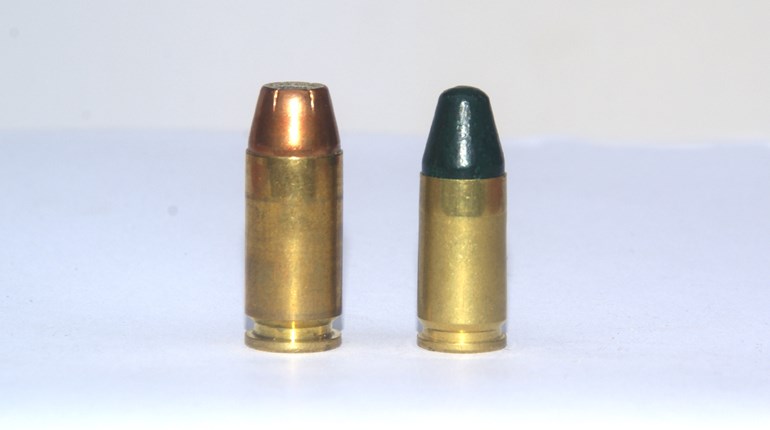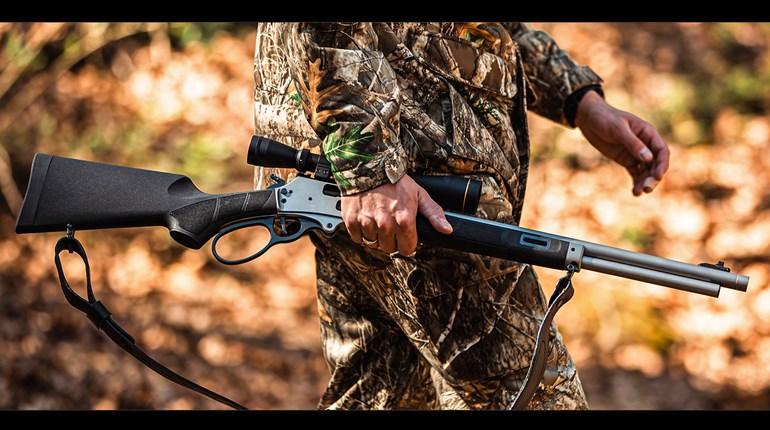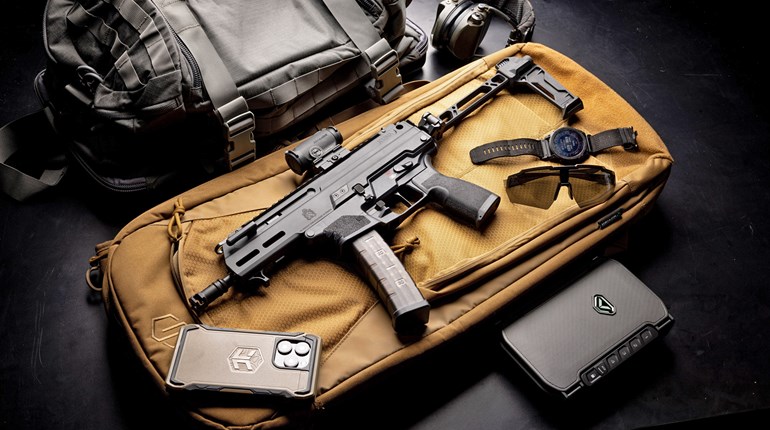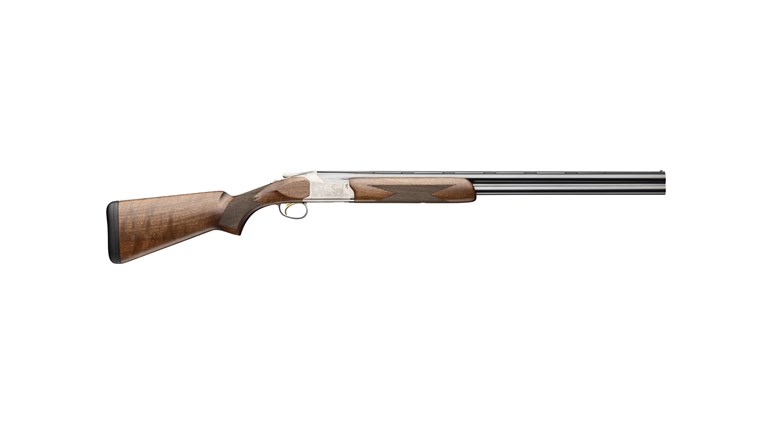
For 2024, Smith & Wesson revamped its affordable SD9 series by introducing the new SD9 2.0 pistol. Like its predecessor, the new SD9 2.0 wears the familiar two-tone silver and black livery, and still represents Smith & Wesson’s value proposition as a no-frills, striker-fired, defensive handgun built around a polymer frame and a 4-inch barrel. The SD9 2.0 operates using the familiar Browning delayed-blowback system found on many of today’s modern handguns. The most notable aspect of the new SD9 2.0 pistol has nothing to do with the gun itself, but the name of the city on the right side of the slide. This is the first Smith & Wesson firearm I’ve handled with “Maryville, TN,” engraved on the slide instead of the familiar and historic “Springfield, MA,” which has been located on the right side of every Smith & Wesson firearm that has passed through the storied Massachusetts factory’s doors for nearly 175 years. With the company’s move to Tennessee, the Maryville rollmark isn’t only ringing in a new year, but also a new era.
The Smith & Wesson SD9 2.0 is a compact semi-automatic pistol with a 16-round magazine capacity. To reduce costs, the slide doesn’t show much sophisticated machining. The pistol uses a polymer rear sight, ships with only one magazine and its frame doesn’t accept any backstrap inserts. It does have an accessory rail on the dustcover, though. SD9 2.0 recoil springs are selected with reliability in mind, so they’re a bit over-sprung for my liking. Advanced shooters will notice the gun’s propensity to dip forward, but this is far from a deal-breaker. Besides, reliability is imperative in defensive pistols.
Manufacturing efficiency is apparent when looking at the front and rear slide serrations. They are not very deep or elaborate, but are sufficient to get the job done. Likewise, SD9 2.0s aren’t optics ready. The topmost part of the SD9 2.0’s slide has flat, continuous serrations from front to rear, which somewhat surprised me as this detail reminds me of the flat serrations on my classic, 6-inch, no-dash, non-M stamped .357 Mag. Model 686 revolver. While it’s not something I would expect to find on a no-frills model, just because a gun is affordable doesn’t mean it can’t display beauty marks.
The included sights on the pistol aren’t anything to write home about, but they’re good enough to hit the eight-ring of an NRA B8 target at 25 yards. For best results, I recommend blacking out the rear sight’s dots and only relying on the dot up front. Other than its slightly recessed crown, the SD9 2.0’s stainless steel barrel itself is straightforward.
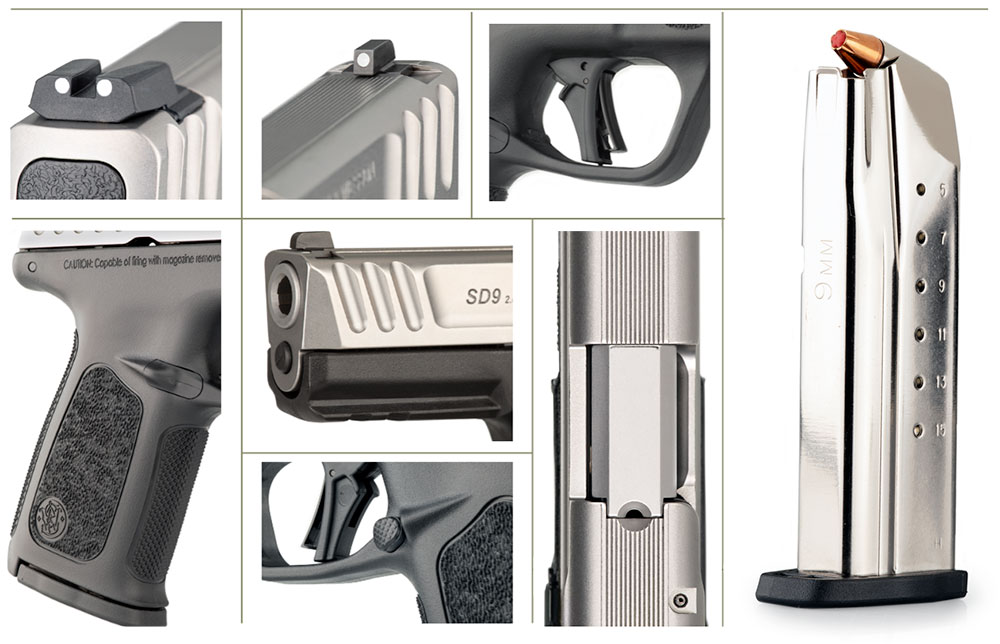
Although SD9 2.0 frames are basic and omit inserts and other peripherals, I find the overall shape and profile to be agreeable and useful to most shooters with normal-size hands. Both the frontstrap and backstrap have the exact same texturing found on the previous SD9 model, while the left and right sides of the grip feature a moderate texture along with gentle convex swells. For a no-frills, molded pistol frame, I found that the SD9 2.0’s grip is conducive to efficient draws and good target presentation. Besides the flattop slide serrations, the grip is my other favorite feature about the SD9 2.0. No one is winning bullseye matches with an SD9 2.0 trigger, as it has all the hallmarks of the typical striker-fired trigger with a fairly long and spongy break. The same goes for its reset, but something tells me a double-action revolver shooter wouldn’t mind it. Humor aside, the SD9 2.0 trigger works perfectly fine in the context of an affordable defensive firearm, and I didn’t perceive it to hinder my shooting.
I fired exactly 301 rounds of factory 9 mm for the review, with ammunition including Staccato’s brand-new Range 124-grain FMJ training load, Fiocchi’s 115-grain JHPs and Federal’s Syntech purple-coated 147-grain TSJ, which also ballistically match the shooting characteristics of Federal Premium’s 147-grain HST JHP rounds. I also fired 115-grain CCI Blazer Aluminum FMJ the most through the pistol, which fired and cycled every round it chambered, but after 55 rounds, I noticed the slide failed to lock back. The trigger pin started to walk out from recoil, but I fixed it by tapping it back into place and making sure the spring fully sat in the groove. I had no further issues during the rest of testing. I did notice the mag catch and its spring started to drag and feel hesitant after completing about 70 percent of my testing. I ensured the leaf-spring that tensions the mag catch was in place and then vigorously slid the mag-catch until it “settled.” I think this leaf spring could be more robust to prevent the mag catch from dragging.
With the exception of the accuracy evaluation, all my shooting was done with a timer and from concealment using my PHLster Floodlight 2, which is how I noticed the SD9 2.0’s grip lends itself well to solid grip acquisition and draw stroke. Most shots I fired were performed in rapid-fire strings with tests like the Bill Drill (with my best run at 2.65 seconds); I also shot the Hardwired Tactical Shooting Advanced Super Test and scored 280 out of 300 points. At no point did I think the gun’s factory trigger held me back. The Staccato FMJ ammo printed consistent groups, though this pistol seemed to favor the 147-grain Syntech rounds.
Since the SD9 2.0 is a basic pistol, it’s true that it’s not as sophisticated as even the least expensive M&P9 M2.0. It’s easy for the modern shooter and firearm consumer to become dismissive of “affordable” guns due to the wide availability of various feature-rich makes and models hailing from other countries. That aside, cost should never be a limiting factor in any American’s right to keep and bear arms, so cost-conscious firearms play a critical role in arming the common person who lacks deep pockets and therefore protecting everyone’s rights. With a $349 MSRP, a person can buy this fully American-made handgun and still have a reliable and accurate pistol for defense, which is, after all, the SD9 2.0’s intended use.
If I had to carry this pistol, I would not feel undergunned. After all, I was able to shoot a decent Bill Drill score with the handgun, it comes with a useful grip profile and it has a 16+1-round capacity. Seeing how well the SD9 2.0 handled the coated Federal Syntech 147-grain rounds, I’d feel perfectly fine loading it with the aforementioned Federal HST load and going about my day.











